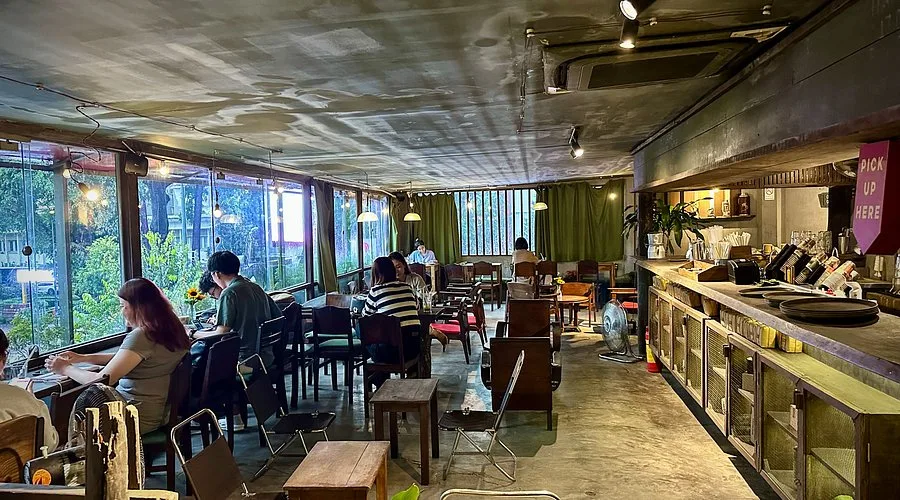How to Use Crypto for Real Purchases in Thailand (2025 Travel Guide)
How to Use Crypto for Real Purchases in Thailand (2025 Travel Guide)
If you’re holding crypto and planning a trip to Thailand, you might be wondering: can I actually spend BTC or USDT while I’m there? The answer is yes—at least in certain places. This guide walks you through exactly how to pay with crypto in Thailand, which platforms and apps make it possible, and where to go if you want to use your digital assets for real-world spending.
Step 1: Where can I use crypto in Thailand? Choose the Right Coins
Most crypto-friendly businesses in Thailand prefer Bitcoin (BTC) and Tether (USDT). While BTC is still popular, its volatility makes USDT and other stablecoins a more practical choice for day-to-day spending.
Before you travel, make sure your wallet supports these coins and is ready to scan QR codes. MetaMask, Trust Wallet, or Binance Wallet (for Binance TH users) are good starting points.

Step 2: Where can I use crypto in Thailand? Know Where Crypto Is Accepted
Thailand isn’t fully crypto-native yet, but certain neighborhoods and cities are more open than others. Your best chances lie in two major locations:
In Bangkok:
- Sukhumvit & Silom districts have cafés, wellness centers, and gadget shops where crypto is accepted.
- Some co-working spaces and boutique spas offer QR-based crypto payments via Bitkub or Binance TH wallets.
- A few restaurants may accept payment in BTC or USDT—though they may not always advertise it.

In Phuket:
- Crypto is most accepted in tourist-heavy zones like Patong, Rawai, and Kata.
- Small boutique hotels, beachfront bars, and Airbnb-style rentals may allow USDT or BTC payments—especially if you ask ahead.
- Some tourism services like boat tours, yoga retreats, or scooter rentals are beginning to informally accept stablecoins.

Step 3: Confirm in Advance
Thailand’s crypto acceptance is often low-key and not always clearly advertised. Before showing up, message the business via social media, WhatsApp, or booking platforms to ask if they accept crypto.
For accommodations or service providers, you can also try negotiating a USDT payment directly. Many hosts are open to it—especially on independent booking sites.
Tip: Telegram groups and Reddit threads focused on Thailand’s expat or crypto community are excellent for real-time tips on crypto-accepting places.

Step 4: Learn the Payment Process
When paying with crypto in Thailand, here’s how it typically works:
- The vendor shows you a QR code linked to a crypto wallet.
- You scan it with your mobile wallet and send the exact amount in BTC or USDT.
- In some cases, the business uses a payment processor like BitPay, Binance Pay, or Alchemy Pay to automatically convert crypto to baht.
If the vendor is using a wallet-to-wallet transfer, confirm the address carefully to avoid errors. Always double-check transaction speed and network fees—especially on the Bitcoin network.
Step 5: Understand the Limitations
While it’s exciting to use crypto abroad, here are a few things to keep in mind:
- Not universal: You won’t be able to use crypto at chains like 7-Eleven or for buying BTS Skytrain tickets.
- Volatility risk: BTC price swings may make vendors hesitant. USDT is safer for fixed-price transactions.
- Regulations: Thai laws allow crypto trading, but direct payments between private parties can fall into a legal gray area. Many vendors handle this by converting crypto to fiat right away.

Credit from : TripAdvisor
Final Word
Crypto spending in Thailand is no longer just theoretical. If you prepare ahead, use the right wallets, and confirm with vendors in advance, you’ll find a growing number of real-world places that welcome digital payments—especially in Bangkok and Phuket.
While it’s not yet mainstream, crypto is gaining a foothold in travel and hospitality. Think of it as part of your travel toolkit—not a replacement for traditional money, but a flexible, fast option in the right setting.




